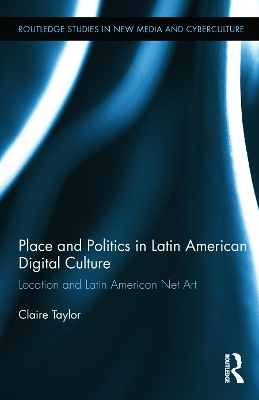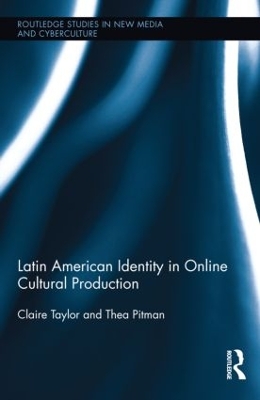Routledge Studies in New Media and Cyberculture
2 total works
This volume explores one of the central issues that has been debated in internet studies in recent years: locality, and the extent to which cultural production online can be embedded in a specific place. The particular focus of the book is on the practices of net artists in Latin America, and how their work interrogates some of the central place-based concerns of Latin(o) American identity through their on- and offline cultural practice.
Six particular works by artists of different countries in Latin America and within Latina/o communities in the US are studied in detail, with one each from Uruguay, Chile, Argentina, Colombia, the US-Mexico border, and the US. Each chapter explores how each artist represents place in their works, and, in particular how traditional place-based affiliations, or notions of territorial identity, end up reproduced, re-affirmed, or even transformed online. At the same time, the book explores how these net.artists make use of new media technologies to express alternative viewpoints about the locations they represent, and use the internet as a space for the recuperation of cultural memory.
Latin American Identity in Online Cultural Production
by Claire Taylor and Thea Pitman
This volume provides an innovative and timely approach to a fast growing, yet still under-studied field in Latin American cultural production: digital online culture. It focuses on the transformations or continuations that cultural products and practices such as hypermedia fictions, net.art and online performance art, as well as blogs, films, databases and other genre-defying web-based projects, perform with respect to Latin American(ist) discourses, as well as their often contestatory positioning with respect to Western hegemonic discourses as they circulate online. The intellectual rationale for the volume is located at the crossroads of two, equally important, theoretical strands: theories of digital culture, in their majority the product of the anglophone academy; and contemporary debates on Latin American identity and culture.

